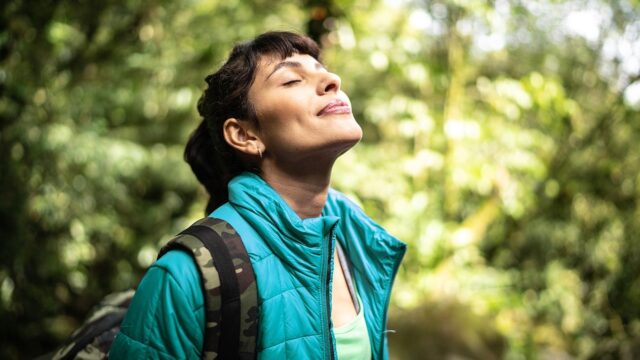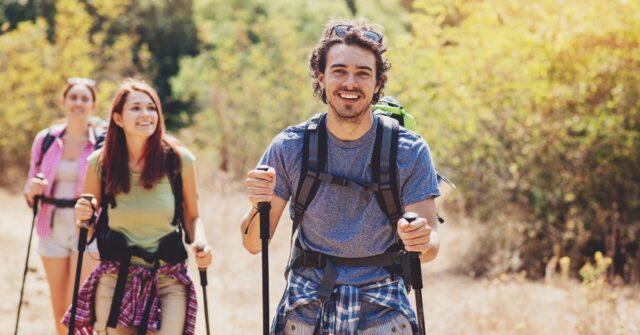
Mental health benefits of outdoor activities are becoming increasingly recognized in our screen-saturated, fast-paced world.
Whether it’s a hike through the woods, a day spent fishing by the lake, or a simple walk in your neighborhood park, immersing yourself in nature can significantly boost your mental health.
As mental health issues like anxiety, depression, and attention fatigue grow more prevalent, people are continually seeking natural ways to heal and restore balance. The good news is, the outdoors provides a sanctuary.
How Nature Positively Affects the Brain and Emotions

Mental health benefits of outdoor activities start at the neurological level. Humans are biologically predisposed to find nature comforting—a concept known as the biophilia hypothesis.
This theory suggests we are hardwired to connect with the natural world, and science backs it up. When we’re surrounded by natural scenery, our brains produce more dopamine and serotonin, the very chemicals that regulate mood and happiness.
Exposure to green and blue spaces—such as forests, lakes, and oceans—calms the brain. Brain imaging studies reveal that spending time outdoors increases activity in the prefrontal cortex associated with emotional regulation and self-reflection.
Additionally, when we spend time in nature, our cortisol levels—known as the stress hormone—drop significantly, providing a biological foundation for why we feel more at ease.
Reducing Anxiety and Depression Through Outdoor Activities
The mental health benefits of outdoor activities are compelling, including reducing anxiety and depression. Outdoor physical activities like walking, kayaking, or hunting serve as natural forms of mindfulness.
They draw attention away from internal stressors and refocus it on the environment around you. Just 20 minutes of sunlight a day can optimize vitamin D levels and trigger serotonin production, helping to elevate your mood naturally.
Ecotherapy, a therapeutic practice using outdoor environments to treat mental health issues, is gaining traction in clinical settings. Programs designed for group outdoor socialization also tackle the loneliness epidemic by fostering community, which plays a key role in mental fitness.
Numerous studies link time in nature to lower depression scores. For example, the University of Michigan found that participants who took nature walks had significantly fewer symptoms of depression and reported more positive moods compared to those who didn’t.
Boosting Focus, Creativity, and Cognitive Function in the Outdoors

Another incredible mental health benefit of outdoor activities is the ability to restore focus and enhance creativity. According to Attention Restoration Theory, natural environments engage our brains in soft fascination—gentle stimulation that frees up cognitive resources and restores mental energy.
Children who play outside regularly demonstrate stronger problem-solving skills and creativity, while adults experience renewed cognitive functions after hiking or unplugging from digital distractions.
Spending time away from screens while walking a trail or fishing can rejuvenate your concentration levels, making you more productive and creative at work or school.
Enhancing Self-Esteem and Confidence Through Physical Outdoor Activities
The mental health benefits of outdoor activities also extend to self-esteem and personal growth. Activities like hiking in mountainous terrain, reeling in a challenging fish, or building your campfire encourage goal-setting, resilience, and a sense of accomplishment.
Unplugging from tech and engaging in survival or wilderness skills taps into innate human capabilities, restoring a sense of control and competence often lost in daily life.
Outdoor programs for youth and veterans are impactful, offering structured experiences that reinforce self-worth and interpersonal trust.
Outdoor Adventure Activities and Mental Health for Special Populations

Mental health benefits of outdoor activities have been transformative for special populations, particularly for veterans, teens, and trauma survivors.
Many veteran groups now use hunting and fishing excursions as therapeutic ways to manage PTSD and rebuild trust.
The combination of solitude, focus, and physical activity performs a dual function: facilitating calm while fostering camaraderie.
Wilderness therapy programs for teenagers help combat anxiety and depression by challenging them in a supportive, natural setting.
Moreover, survivors of trauma are increasingly turning to extended wilderness retreats to process grief and emotional pain in a non-clinical, yet deeply healing environment.
Adaptive outdoor sports also offer people with disabilities a new way to interact with the world, bolstering their mental and emotional resilience.
Simple Ways to Incorporate Outdoor Time into Your Daily Life
Mental health benefits of outdoor activities can be felt even without committing to epic treks or remote getaways.
Micro-adventures—short, simple outdoor experiences—can provide significant boosts in mood and brain function. Just 15–30 minutes in a green space daily can set the tone for emotional balance.
You can start small: take your coffee outdoors in the morning, visit a local park on your lunch break, or go backyard camping with your family.
Disconnecting from your phone, even momentarily, while you’re outside amplifies nature’s restorative power. Build these moments into your routine with a seasonal habit tracker—monitor how you feel after each outing.
Come weekends, explore hiking trails, go fishing, or take up a new outdoor hobby to deepen your connection with the natural world.
Mental health benefits of outdoor activities are accessible, measurable, and enduring. By simply stepping outside and letting nature be your therapy, you open doors to more joy, clarity, and emotional wellness.
Conclusion

Mental health benefits of outdoor activities are not just a trend—they are a time-tested, science-supported key to emotional and psychological well-being.
From improving focus and creativity to reducing depression and fostering self-esteem, time in nature is a holistic therapy that anyone can access.
Whether tracking deer in the forest, casting a line into a quiet lake, or taking a meditative walk through the woods, the natural world offers a profound sense of grounding.
Nature doesn’t demand perfection—it encourages presence.
So leave the screens behind, breathe in the wild, and start reaping the mental health benefits of outdoor activities, one sunrise at a time.
About Tom Guzman
Tom Guzman here—hunter, outdoor‑gear enthusiast, and advocate for responsible pursuit of game. My career has been forged on rugged ridgelines and in dense timber, where I’ve learned which tools work, which don’t, and why ethical methods matter.
Founding Trophy Pursuit allowed me to channel that experience into informative content, boosted by my background in SEO and digital marketing to ensure it reaches those who need it most.
Whether you’re scouting your first whitetail stand or refining a seasoned backcountry routine, my writing delivers real‑world advice to elevate your success and safety in the field.



